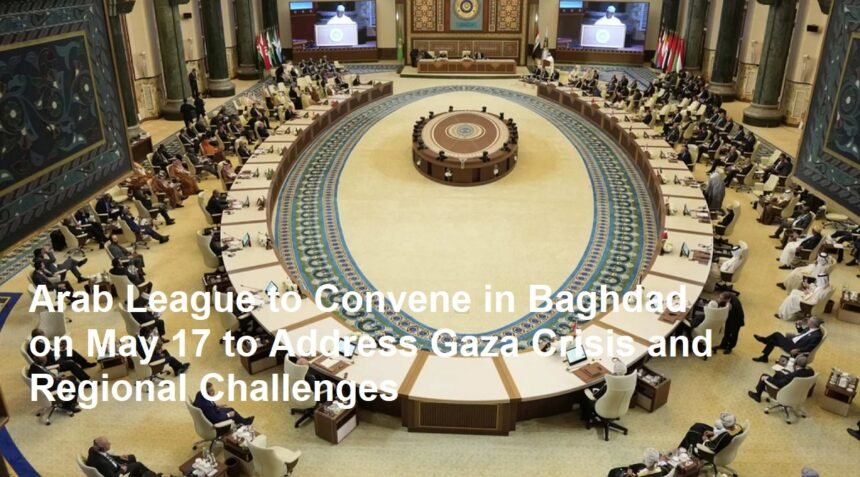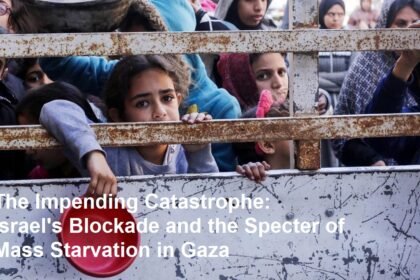The Arab League is set to hold a crucial summit in Baghdad on Saturday, May 17, 2025, bringing together leaders from across the Arab world to discuss the escalating crisis in Gaza amid ongoing Israeli military operations, as well as other pressing regional issues. This high-profile meeting underscores the growing urgency felt by Arab nations to coordinate a unified response to the humanitarian and political turmoil affecting the region.
The summit is particularly significant given the recent intensification of Israeli airstrikes on Gaza, which have resulted in substantial civilian casualties and widespread destruction. The Arab League aims to deliberate on strategies to alleviate the suffering of Palestinians, call for an immediate ceasefire, and explore diplomatic avenues to de-escalate tensions. The meeting also provides a platform to address broader regional challenges, including security concerns, political instability, and economic cooperation.
Among the notable attendees is United Nations Secretary-General António Guterres, whose presence highlights the international community’s vested interest in resolving the conflict and supporting peace efforts. Guterres is expected to advocate for humanitarian access, protection of civilians, and renewed dialogue between conflicting parties. His participation signals a coordinated effort between the Arab League and the UN to mobilize global support for a peaceful resolution.
Spanish Prime Minister Pedro Sánchez will also attend the summit, reflecting the involvement of European actors in Middle Eastern affairs. Spain’s engagement points to the broader geopolitical implications of the Gaza crisis, including concerns over regional stability, migration, and international security. Sánchez’s presence may facilitate dialogue between Arab states and European partners, fostering cooperation on humanitarian aid and conflict resolution.
Palestinian President Mahmoud Abbas is the first to arrive in Baghdad, having reached the city on Friday, May 16. His attendance is pivotal, as he represents the Palestinian people’s interests and aspirations. Abbas is expected to use the platform to appeal for solidarity, international support, and concrete measures to end the violence in Gaza. His participation also underscores the importance of Palestinian leadership in shaping the outcomes of regional diplomacy.
The choice of Baghdad as the host city carries symbolic and strategic weight. Iraq, having experienced its own share of conflict and reconstruction, is positioning itself as a mediator and influential player in Arab affairs. Hosting the Arab League summit allows Iraq to demonstrate its commitment to regional unity and peace, while also addressing its own security and economic challenges in the context of broader Middle Eastern dynamics.
The agenda of the summit will likely focus on several key issues:
- Gaza Crisis: Discussions will center on the humanitarian impact of the Israeli military campaign, calls for an immediate ceasefire, and mechanisms to facilitate aid delivery. The Arab League may also consider political initiatives to support Palestinian rights and sovereignty.
- Regional Security: The meeting will address ongoing conflicts and tensions in the Middle East, including concerns over foreign interventions, terrorism, and border disputes. Collaborative security frameworks and intelligence sharing may be explored.
- Economic Cooperation: Leaders are expected to discuss ways to enhance economic integration, trade, and development projects to promote stability and prosperity across member states.
- Diplomatic Initiatives: The summit may seek to strengthen diplomatic ties among Arab countries and with international partners, aiming to present a united front in negotiations related to the Israeli-Palestinian conflict and other regional matters.
The Arab League’s ability to influence the situation in Gaza and the wider region depends on the unity and resolve of its member states. Past summits have sometimes been hampered by divergent national interests and political rivalries. However, the severity of the current crisis and the presence of key international figures may provide the impetus for more decisive action.
The outcomes of the Baghdad summit will be closely watched by governments, analysts, and humanitarian organizations worldwide. Effective coordination and a clear roadmap for peace could help alleviate the suffering in Gaza and contribute to long-term stability in the Middle East. Conversely, failure to reach consensus or implement meaningful measures may prolong the conflict and deepen regional divisions.
In conclusion, the Arab League’s meeting in Baghdad on May 17, 2025, represents a critical moment for addressing the Gaza crisis and broader regional challenges. With participation from influential leaders such as UN Secretary-General António Guterres, Spanish Prime Minister Pedro Sánchez, and Palestinian President Mahmoud Abbas, the summit offers a vital opportunity for dialogue, solidarity, and coordinated action. As the region grapples with complex political and humanitarian issues, the decisions made in Baghdad could shape the future trajectory of peace and stability in the Middle East.









